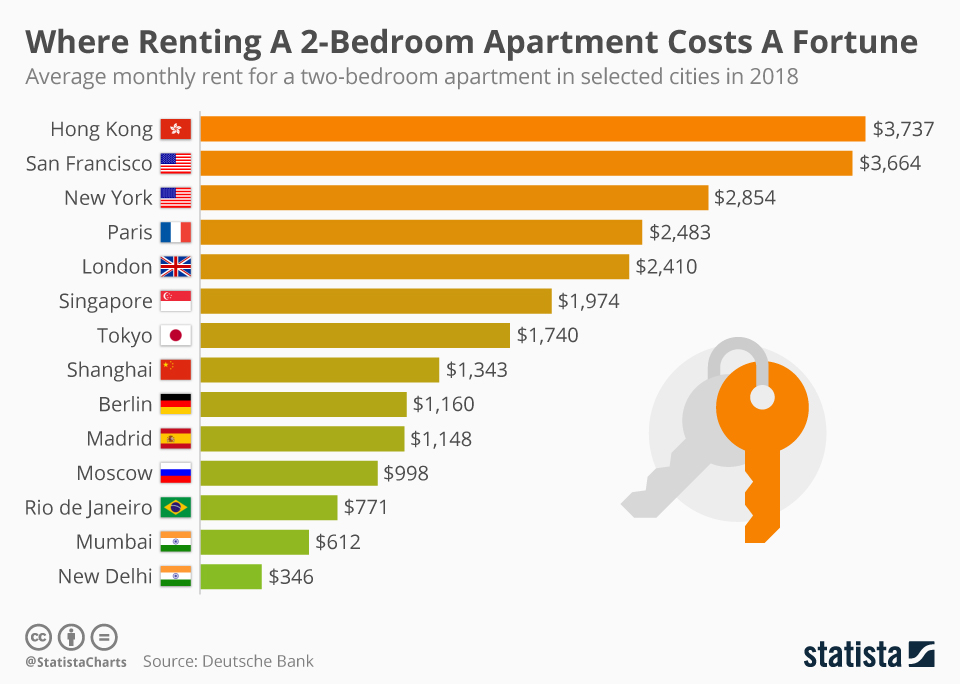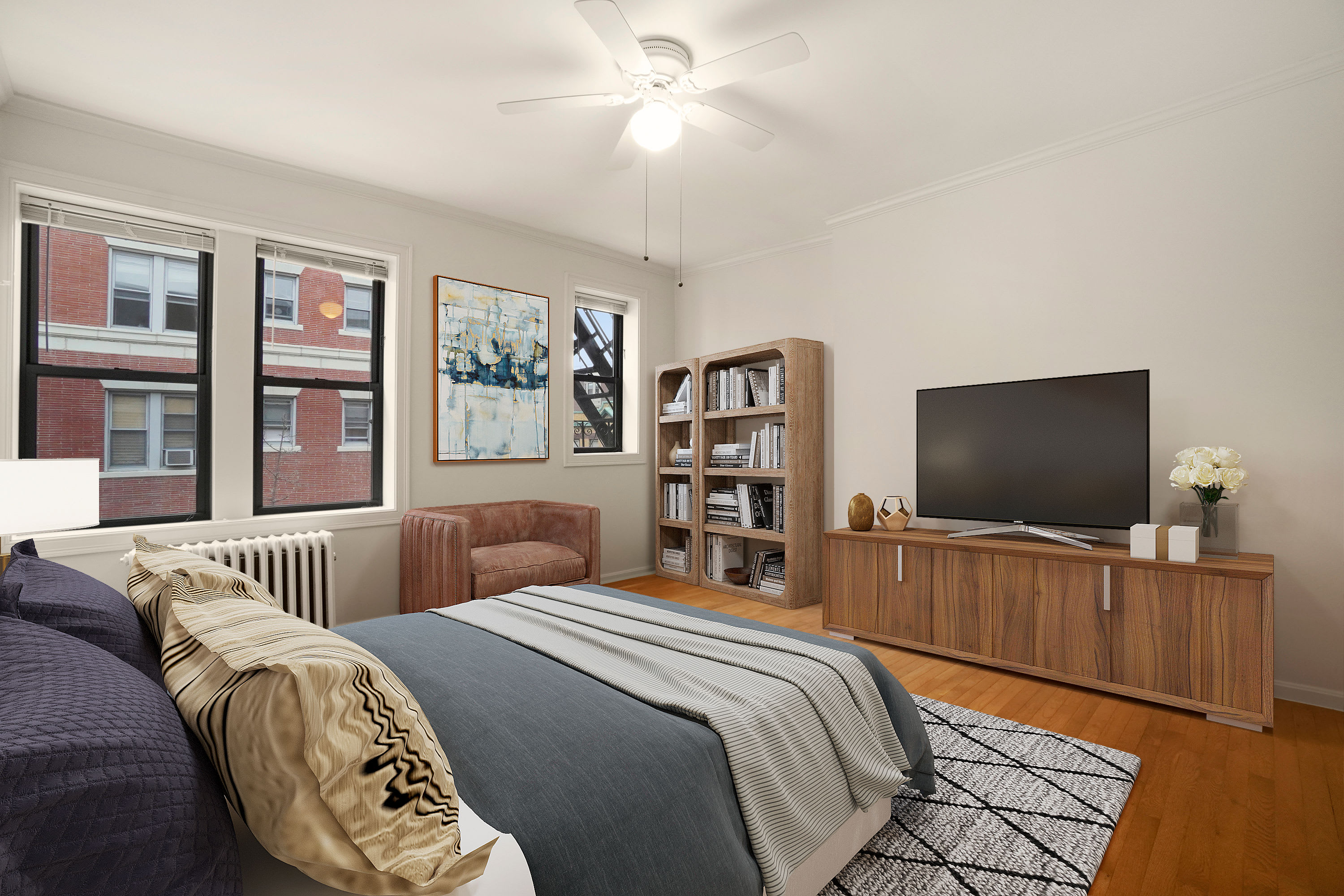Factors Influencing Average Bills

The average cost of utilities for a 2-bedroom apartment can vary significantly depending on a range of factors. Understanding these factors is crucial for budgeting and making informed decisions about your housing choices.
Location Impact on Utility Costs, Average bills for 2 bedroom apartment
Location plays a significant role in determining utility costs. Climate, particularly temperature extremes, can greatly impact heating and cooling expenses. For instance, apartments in colder climates will generally have higher heating bills than those in warmer regions. Similarly, apartments in areas with high humidity will likely require more energy for air conditioning.
Urban vs. rural locations also influence utility costs. Urban areas often have higher energy prices due to greater demand and infrastructure costs. Additionally, urban apartments may be subject to higher property taxes, which can indirectly impact utility bills.
Apartment Size and Amenities
The size of the apartment directly impacts utility consumption. Larger apartments require more energy for heating, cooling, and water heating. Amenities such as swimming pools, fitness centers, and laundry facilities can also increase utility costs, as they require additional energy and water usage.
Building Age and Energy Efficiency
Older buildings generally have lower energy efficiency compared to newer ones. Older apartments may have outdated insulation, windows, and appliances, leading to higher energy consumption. Newer buildings often incorporate energy-efficient features such as insulation, high-performance windows, and energy-saving appliances, resulting in lower utility bills.
Heating and Cooling System Costs
The type of heating and cooling system installed in an apartment significantly impacts utility costs. Electric heating systems tend to be more expensive than gas heating systems, especially in areas with high electricity prices. Similarly, central air conditioning systems typically consume more energy than window units.
Lifestyle Choices
Lifestyle choices can also influence utility bills. For example, excessive appliance usage, such as leaving lights on or running the dishwasher frequently, can increase electricity consumption. Temperature preferences also play a role; setting the thermostat higher in the summer and lower in the winter can significantly impact heating and cooling costs.
Breakdown of Average Bills: Average Bills For 2 Bedroom Apartment

Understanding the average utility bills for a 2-bedroom apartment is crucial when budgeting for housing expenses. These costs can vary significantly depending on factors such as location, climate, and individual consumption habits.
Average Utility Costs by Region
This table provides a general overview of average monthly utility costs for a 2-bedroom apartment in different regions of the United States.
| Region | Electricity | Gas | Water | Internet |
|—|—|—|—|—|
| New York City | $150 | $80 | $70 | $60 |
| Los Angeles | $120 | $50 | $60 | $50 |
| Chicago | $100 | $60 | $50 | $40 |
| Houston | $80 | $40 | $40 | $30 |
| Phoenix | $100 | $30 | $40 | $40 |
Note: These are average figures and actual costs may vary depending on individual usage and provider rates.
Visual Representation of Average Bills
A bar chart can visually represent the breakdown of average utility bills. The chart would have five bars, each representing a different utility (electricity, gas, water, internet, and other). The height of each bar would correspond to the average monthly cost of that utility. This visual representation allows for easy comparison of the relative costs of different utilities.
Variability in Bills Based on Consumption Patterns
Individual consumption patterns play a significant role in determining actual utility bills. For example, a household with multiple occupants may have higher electricity and water usage compared to a single-person household. Similarly, households that frequently use heating or cooling systems will have higher gas or electricity bills.
Calculating Average Monthly Expenses
To calculate average monthly expenses for a 2-bedroom apartment, you can use the following formula:
Average Monthly Expenses = (Electricity Cost + Gas Cost + Water Cost + Internet Cost + Other Expenses) / 12
For instance, if the average monthly costs for a 2-bedroom apartment in New York City are $150 (electricity), $80 (gas), $70 (water), $60 (internet), and $50 (other), then the average monthly expenses would be:
($150 + $80 + $70 + $60 + $50) / 12 = $510 / 12 = $42.50
This means the average monthly expenses for a 2-bedroom apartment in New York City would be approximately $42.50.
Tips for Reducing Bills
.png)
Reducing your utility bills in a 2-bedroom apartment can significantly impact your budget. By implementing simple energy-saving techniques, you can lower your electricity, gas, and water consumption, leading to substantial cost savings.
Energy-Saving Techniques for Appliances and Electronics
Using energy-efficient appliances and electronics can significantly reduce your electricity consumption. Consider the following tips:
- Turn off lights when leaving a room: This simple habit can save you a significant amount of energy. Make it a routine to switch off lights in unoccupied rooms, hallways, and bathrooms.
- Use energy-efficient light bulbs: LED bulbs consume significantly less energy than traditional incandescent bulbs while providing comparable brightness. Replace all your light bulbs with energy-efficient options to reduce your electricity consumption.
- Unplug electronics when not in use: Many electronic devices continue to consume energy even when they are turned off. Unplugging chargers, laptops, and other electronics when not in use can save you money on your electricity bill.
- Use power strips: Power strips allow you to turn off multiple devices with a single switch, preventing phantom power consumption from unused electronics.
- Wash clothes in cold water: Heating water accounts for a significant portion of your energy consumption. Washing clothes in cold water can save you money on your electricity bill.
- Air dry clothes whenever possible: Using a dryer consumes a lot of energy. Air drying your clothes whenever possible can save you money and reduce your environmental impact.
- Choose energy-efficient appliances: When purchasing new appliances, look for Energy Star certified models, which are designed to be more energy-efficient and save you money on your utility bills.
Optimizing Heating and Cooling Systems
Adjusting your heating and cooling systems can significantly impact your energy consumption.
- Set your thermostat appropriately: In winter, lower your thermostat by a few degrees to save on heating costs. In summer, raise your thermostat to reduce cooling costs.
- Use ceiling fans: Ceiling fans can help circulate air and make your home feel cooler in the summer. Running a ceiling fan can allow you to raise your thermostat by a few degrees without sacrificing comfort.
- Install programmable thermostats: Programmable thermostats allow you to set different temperatures for different times of the day, reducing your energy consumption when you are not home or asleep.
- Seal air leaks: Air leaks can make your home more difficult to heat or cool, increasing your energy consumption. Seal any air leaks around windows, doors, and other areas to improve your home’s energy efficiency.
- Use curtains and blinds: Curtains and blinds can help insulate your home and reduce heat loss in the winter and heat gain in the summer.
Water-Saving Practices
Implementing water-saving practices can significantly reduce your water consumption and lower your water bills.
- Install low-flow showerheads: Low-flow showerheads use less water while still providing a satisfying shower experience.
- Fix leaks promptly: Even small leaks can waste a significant amount of water over time. Repair any leaks in your plumbing system as soon as possible.
- Water your lawn efficiently: Water your lawn only when necessary and use a watering system that minimizes water waste.
- Use a water-efficient toilet: Newer toilets use less water per flush than older models. Consider upgrading your toilet to a water-efficient model.
Benefits of Using Renewable Energy Sources
Renewable energy sources, such as solar panels and wind power, can help you reduce your reliance on fossil fuels and lower your electricity bills.
- Reduced electricity costs: By generating your own electricity, you can reduce your dependence on the grid and lower your electricity bills.
- Environmental benefits: Renewable energy sources are cleaner than fossil fuels and produce fewer greenhouse gas emissions, contributing to a healthier environment.
- Increased home value: Homes with solar panels or other renewable energy systems are often more attractive to buyers and can command higher prices in the real estate market.
Potential Cost Savings
Implementing these energy-saving measures can lead to substantial cost savings on your utility bills.
For example, replacing traditional incandescent bulbs with LED bulbs can save you up to 80% on your lighting costs. Installing a programmable thermostat can reduce your heating and cooling costs by up to 10%.
By making small changes to your daily habits and implementing energy-saving technologies, you can significantly reduce your utility bills and save money over time.
Average bills for 2 bedroom apartment – So, you’re thinking about moving into a 2-bedroom apartment? Don’t forget to factor in those pesky bills! Electricity, water, internet… it all adds up, especially if you’re considering a luxurious escape like a DVC Saratoga Springs 2-bedroom.
But hey, at least those bills will be a small price to pay for a vacation home with all the amenities! Just make sure you budget accordingly, or you might end up living off ramen noodles for a month.
So you’re thinking about moving into a 2-bedroom apartment? That’s awesome, but let’s talk about the elephant in the room: bills. Hydro, gas, internet, all that jazz. It can really add up, especially if you’re looking in a place like Mississauga.
If you’re searching for the perfect spot, check out 2 bedroom apt mississauga , they might have some good deals. Once you’ve found the right place, remember to factor in those average bills when calculating your monthly budget.
Nobody wants to be caught off guard by a sky-high hydro bill, right?
